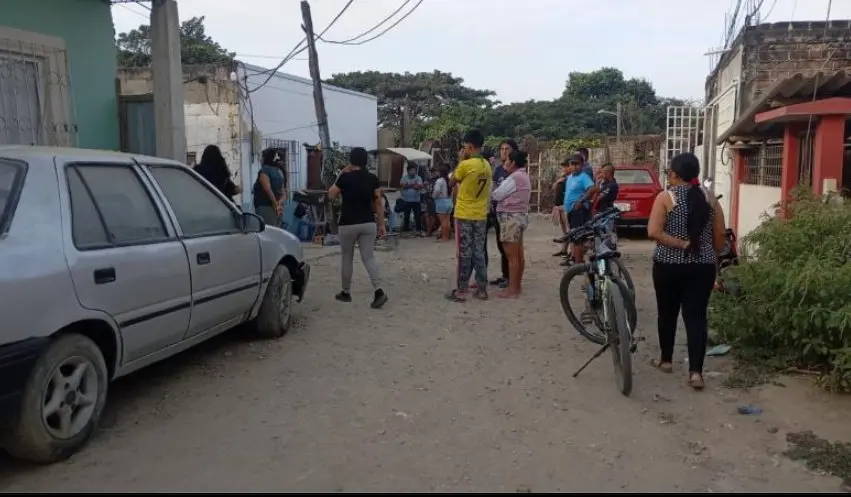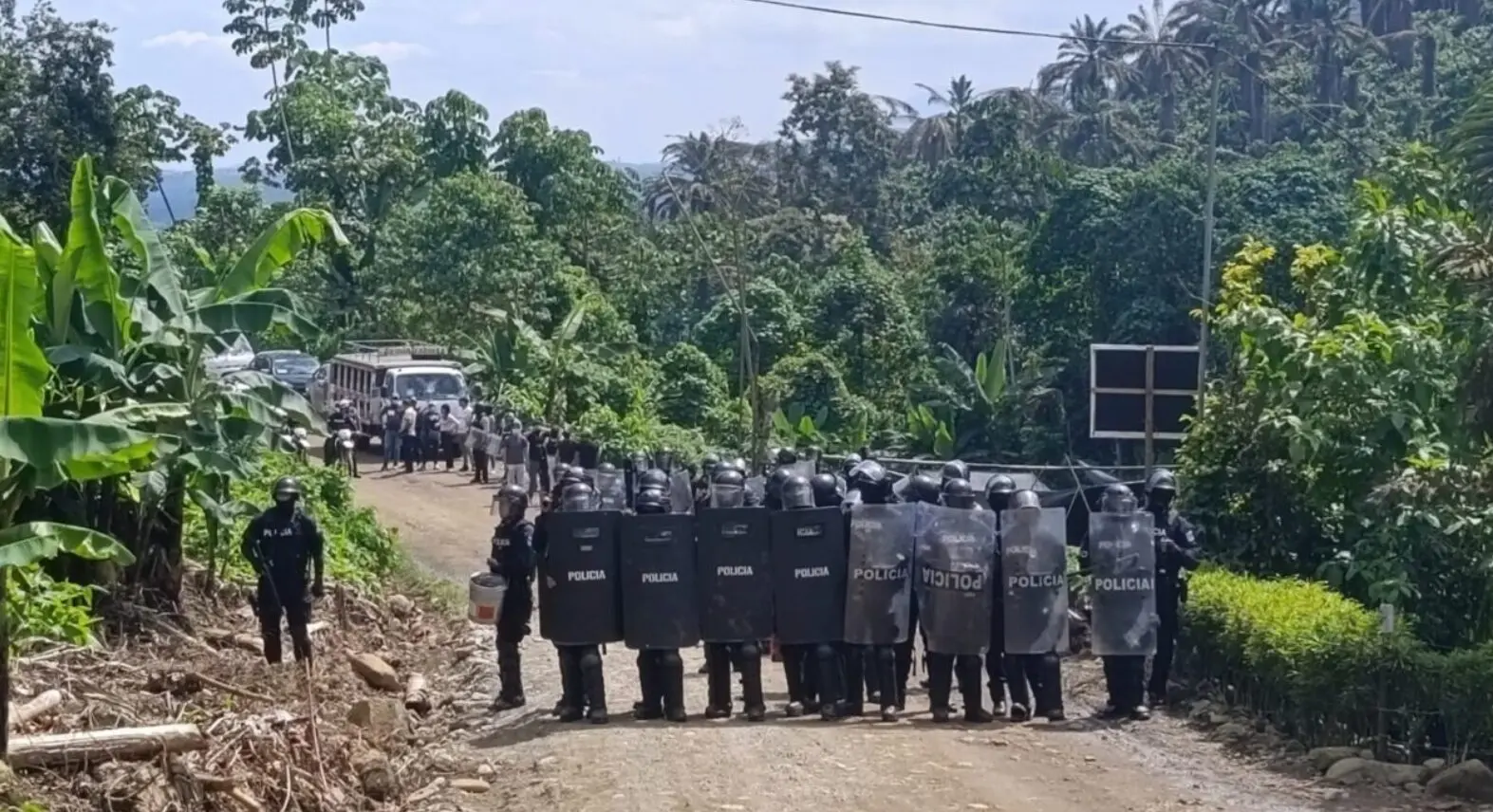Widespread Opposition in Ecuador Over Reform Allowing Foreign Military Bases
Ecuador faces backlash over a reform allowing foreign military bases, raising sovereignty and security concerns.

Ecuadorian indigenous groups protest the constitutional reform permitting foreign military bases, citing threats to national sovereignty. Photo: @eluniversocom
June 4, 2025 Hour: 6:46 am
Ecuador’s National Assembly approved a partial reform to Article 5 of the Constitution, which previously declared the country a territory of peace and explicitly prohibited foreign military bases. The reform passed with 82 votes in favor, 60 against, and 6 abstentions. The change is backed by President Daniel Noboa’s government, which argues it is necessary to strengthen efforts against drug trafficking.
RELATED:
The decision sparked widespread criticism across Ecuadorian society. Indigenous organizations and political movements, notably the Plurinational Unity Movement Pachakutik, condemned the reform as a breach of Ecuador’s sovereignty and an opening to foreign interests.
In an official statement, Pachakutik emphasized that removing the ban on foreign military installations undermines national sovereignty and exposes the country to external agendas. The group pointed out that in other Latin American nations, the presence of foreign military forces has not only failed to curb drug trafficking but has also been used to repress social movements and political opposition, as well as to safeguard territories leased to foreign mining and petroleum companies.
The movement warned that the reform allows the Noboa government to mislead Ecuadorians with empty promises regarding drug trafficking control. They cited regional experiences where foreign military forces were implicated in illicit activities or colluded with criminal groups, undermining the security they claimed to improve.
Ecuador’s own history offers cautionary lessons. Between 1999 and 2009, the United States maintained a military base in Manta. Despite extensive aerial and maritime surveillance, this period coincided with some of the highest homicide rates in Ecuador’s history and persistent drug trafficking problems. It was only after former President Rafael Correa expelled the U.S. base that homicide rates declined and new security approaches were implemented.
The reform also drew concerns from political opposition. Roque Ordóñez, a legislator from the Citizen Revolution bloc, criticized the amendment for dismantling Ecuador’s peace doctrine and warned it risks involving the country in foreign geopolitical conflicts, compromising its neutrality and sovereignty.
Security expert María Fernanda Zambrano, from the Latin American Institute of Strategic Studies, noted that “the militarization of security often results in short-term responses that fail to address the root causes of organized crime, such as poverty, corruption, and weak institutions.” She added that Ecuador needs comprehensive social and economic policies alongside targeted intelligence efforts to effectively tackle drug trafficking.
The legislative process itself faced scrutiny for limited transparency and public engagement. The reform was approved shortly after a newly installed pro-government majority assumed office, with critics highlighting the absence of broad civic consultation. The reform now heads to a national referendum expected later this year, which opponents fear might serve more as a plebiscite supporting the current administration rather than a genuine democratic debate.
Regional observers warn that Ecuador risks repeating failed security models seen in Colombia and other countries, where foreign military interventions, such as the U.S. Plan Colombia, did not eradicate drug trafficking but left lasting social and environmental damage, increased militarization, and dependency on foreign military aid.
Journalist Daniela Pacheco highlighted that these interventions resulted in displacement, economic militarization, and human rights violations, warning, “Why would it be different this time?” She stressed that the true solution requires strengthening public institutions, investing in social programs, and promoting regional cooperation — not just military presence.
As Ecuador approaches the referendum, the country confronts a critical choice: defend its sovereignty and democratic principles or open its doors to foreign military involvement with uncertain and potentially destabilizing consequences. Citizens and civil society groups emphasize the importance of informed public participation to ensure the nation’s security policies reflect Ecuador’s long-term interests.
Author: MK
Source: TeleSUR, PL






